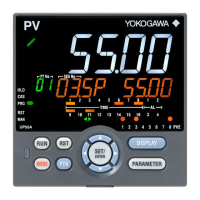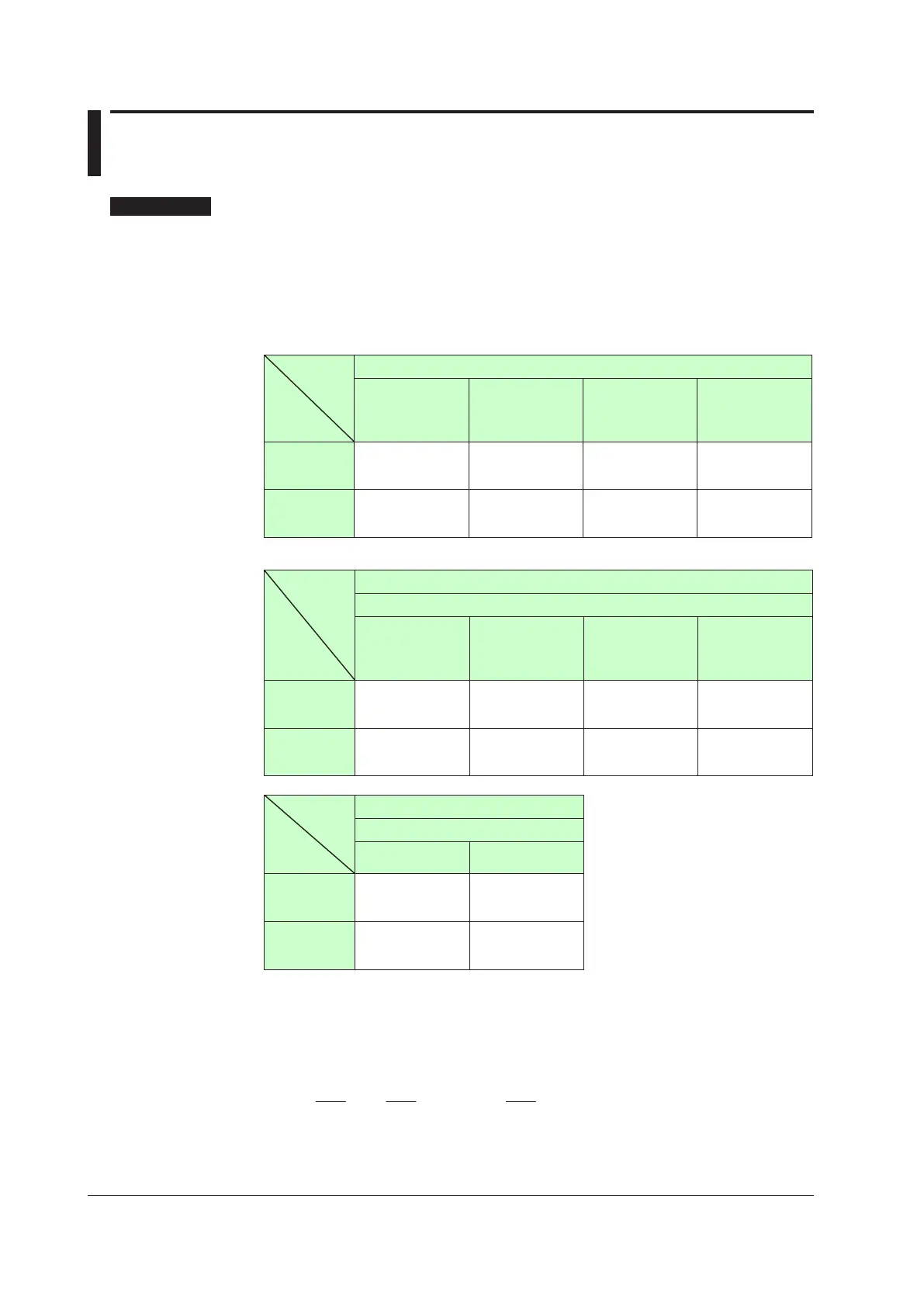8-52
IM 05P02C41-01EN
8.3 SettingPIDControlMode(ALG)
Description
There are two PID control modes: standard PID control mode and fixed-point control
mode.
Select a PID control computation formula shown in the following table according to the
control mode or operation mode.
Single-loop Control, Cascade Primary-loop Control, Loop Control with PV Switching,
Loop Control with PV Auto-selector
Operationmode
Program
operation
PRG+AUTO
Program
operation(when
in hold operation)
PRG+AUTO
Local operation
LOC+AUTO
Remote operation
REM+AUTO
StandardPID
control mode
Deviation derivative
type
PV derivative type
(output bump at SP
change)
PV derivative type
(output bump at SP
change)
Deviation derivative
type
Fixed-point
control mode
PV derivative type
(output bump at SP
change)
PV derivative type
(output bumpless at
SP change)
PV derivative type
(output bumpless at
SP change)
PV derivative type
(output bump at SP
change)
Cascade Control
Operationmode
Primary-loop
Program
operation
PRG+CAS
Program
operation(when
in hold operation)
PRG+CAS
Local operation
LOC+CAS
Remote operation
REM+CAS
StandardPID
control mode
Deviation derivative
type
PV derivative type
(output bump at SP
change)
PV derivative type
(output bump at SP
change)
Deviation derivative
type
Fixed-point
control mode
PV derivative type
(output bump at SP
change)
PV derivative type
(output bumpess at
SP change)
PV derivative type
(output bump at SP
change)
PV derivative type
(output bump at SP
change)
Operationmode
Seconary-loop
Local operation
LSP+AUTO
Cascade operation
CAS+AUTO
StandardPID
control mode
PV derivative type
(output bump at SP
change)
Deviation derivative
type
Fixed-point
control mode
PV derivative type
(output bumpess at
SP change)
PV derivative type
(output bump at SP
change)
PVDerivativeTypePID
This is a PID control method in which the derivative action works only on the PV.
It can also eliminate output bump due to SP changing operation in Local mode.
The following shows the PV derivative type PID control computation formula.
e e
P
+ +dt Td ΔPV
=
100
Ti
1
dt
d
∫
• •
where OUT: control output, e: deviation (PV-SP), P: proportional band, Ti: integral time,
Td:derivativetime,and∆PV:PVn-PVn-1(n-1:valuebeforeonecontrolperiod)

